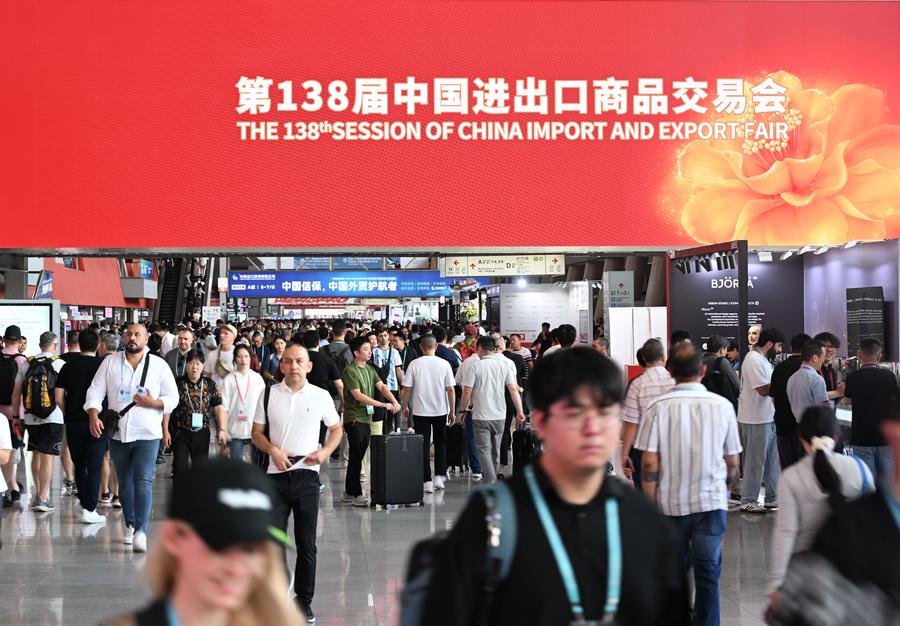
This photo taken on Oct. 15, 2025 shows a scene during the 138th edition of the China Import and Export Fair in Guangzhou, south China's Guangdong Province. (Xinhua/Deng Hua)
At each Canton Fair, Iranian businessman Amin Khoshnavaz can often be seen guiding large groups of buyers from his homeland -- sometimes more than 100 at a time.
When Khoshnavaz first joined his father's business, he helped Iranian businesspeople connect with Chinese partners at the fair. And what began as a family business two decades ago has gradually grown into a bridge for trade, tourism and information exchange between the two countries.
The Canton Fair -- officially known as the China Import and Export Fair -- has become a necessary event for businesspeople from Iran to explore the Chinese market. And Khoshnavaz has been attending for more than 15 years.
"It's not only a fair for trade, which is just about buying or selling. It's about ideas, culture, partnership and trust. It has feelings, energy, and a kind of happiness. Every time I come here, I feel inspired," he said.
Khoshnavaz believes the fair is particularly helpful for businesspeople who are exploring the market, as it gathers a large variety of industries under one roof.
"In other exhibitions, you go to a specific sector -- for instance, cameras, textiles and furniture -- then talk about prices and make deals. But here at the Canton Fair, you can explore everything, get new trade ideas, and open your mind," Khoshnavaz noted.
He described the fair as "a university for business," where small ideas can grow into global ventures. "You meet people from Russia, Korea, Africa -- from everywhere. This is what free trade really means," he said.
He noted that a growing number of people in the Iranian business community are showing interest in Chinese products, and are eager to bring more Chinese-made goods and innovative products to the Iranian market.
Language barriers, however, can limit cooperation between China and Persian countries, according to Khoshnavaz. He said that most information about China available in Iran today is translated from English sources, which sometimes creates misunderstanding.
He and his partners have launched a bilingual online platform, the Iran Directory. The project provides news, travel and business information about Iran in the Chinese language, aiming to help Chinese audiences understand Iran in an improved manner. "We want to fill this gap," he said.
The project also features Iranian culture and lifestyle sections, covering topics from history and food to art and tourism. Khoshnavaz hopes the project will help strengthen the friendship between the two nations.
Recently, the Iran Directory team has started building a business-to-business platform for Chinese travel agencies, helping them book services and organize tours more efficiently in Iran. Khoshnavaz said that he believes people-to-people exchange is essential to deepening ties.
"Nowadays, more Iranians come to China to study or do business. And more Chinese friends are interested in Iran. These exchanges create understanding and cooperation," he said.
His company also provides consultation services and market reports for Iranian enterprises planning to attend the Canton Fair, while assisting Chinese firms in seeking Iranian partners. "Our goal is to connect, to bridge. That's what is written on my business card," he said.
Khoshnavaz remains optimistic about the future of China-Iran cooperation and is committed to enhancing mutual understanding between the two peoples.
"We have a long history of friendship. Challenges exist, but with goodwill and effort, we can overcome them," he said.






